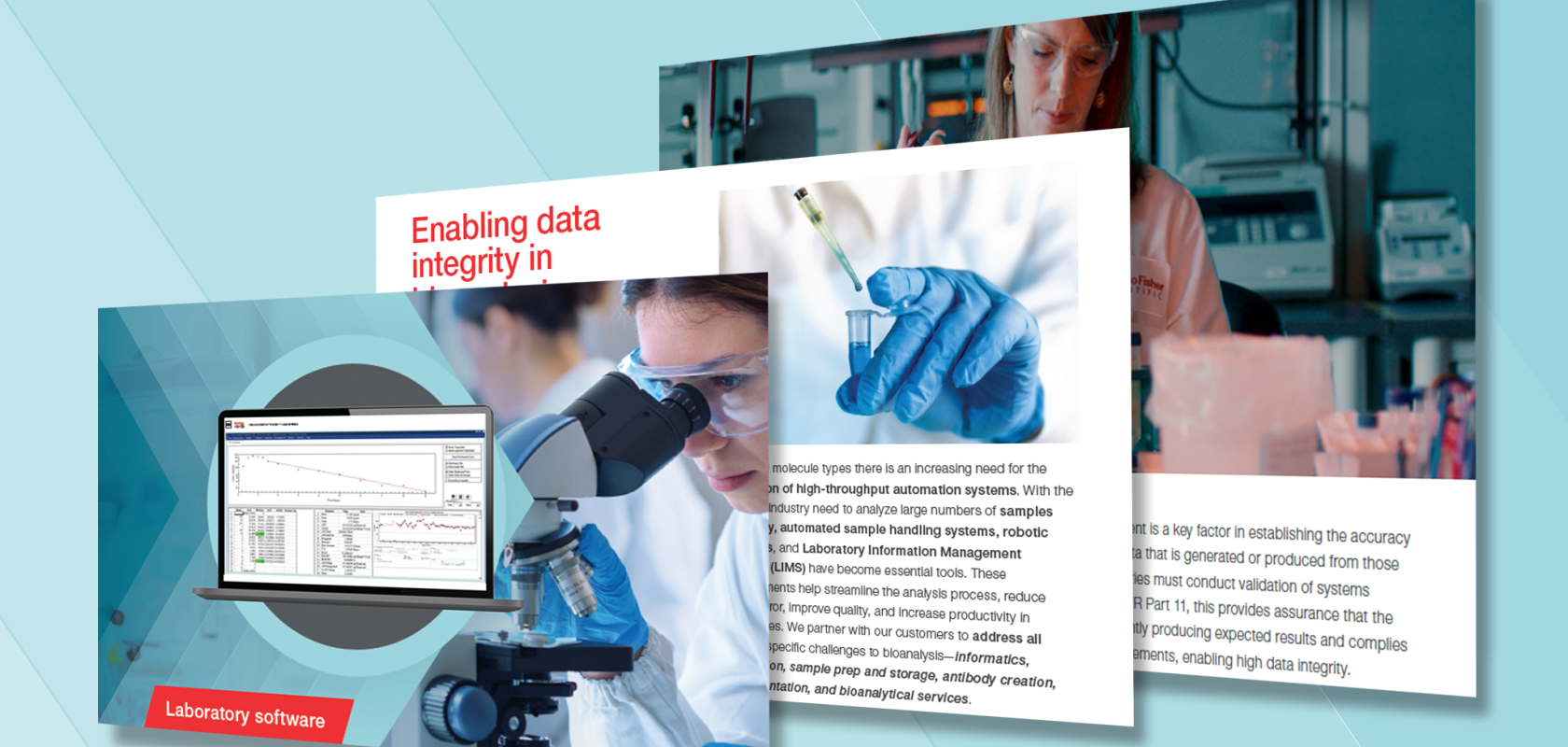Protecting bioanalytical data integrity from bench to report

Protecting bioanalytical data integrity from bench to report - A Thermo Fisher Scientific White Paper
In fiscal year 2022, nearly half of FDA nonclinical inspections resulted in significant observations on Form FDA 483. The recurring issues? Inadequate training, failure to follow procedures, and insufficient oversight. For bioanalytical laboratories supporting drug development, these aren't just administrative concerns - they're fundamental threats to data integrity that can derail entire programmes and cost millions to remediate.
As the industry accelerates development of monoclonal antibodies, cell therapies, and gene therapies, regulatory scrutiny has intensified. With over 1,000 active monoclonal antibody studies alone currently recruiting, the demand for robust, compliant bioanalytical data has never been greater. Yet many laboratories still rely on fragmented systems and manual processes that leave data integrity vulnerable at every stage.
Who should read this White Paper?
This White Paper is essential reading for anyone accountable for maintaining data quality and regulatory compliance in bioanalytical environments. Whether you're a study director navigating GLP requirements, a laboratory manager implementing automation, a QA professional preparing for inspections, or a scientist validating bioanalytical methods, you'll find practical insights into protecting data integrity across your entire workflow.
Bioanalytical professionals at pharmaceutical companies, biotechnology firms, and contract research organisations conducting clinical and nonclinical studies will benefit from understanding how modern laboratory information management systems address today's most pressing compliance challenges.
What you'll discover
This comprehensive White Paper reveals why data integrity failures occur and, more importantly, how to prevent them. You'll explore the three critical elements of bioanalytical data integrity: maintaining analyte and drug product integrity, ensuring sample identity throughout the chain of custody, and establishing complete, auditable documentation from method development through study archival.
You'll gain practical understanding of regulatory frameworks including FDA 21 CFR Part 11, EMA bioanalytical method validation guidelines, and GLP/GCP requirements. Most importantly, you'll learn how purpose-built bioanalytical LIMS technology provides end-to-end traceability, automates compliance processes, and transforms regulatory risk into competitive advantage.
The White Paper illustrates real-world impacts: how inadequate documentation leads to refuse-to-file determinations, why complete chain of custody matters to auditors, and how automation reduces human error whilst increasing laboratory productivity. With regulatory agencies rejecting submissions due to data integrity concerns, understanding these principles isn't optional - it's essential to bringing safe, effective therapies to patients.
Download your copy today
Discover how market-leading Thermo Scientific™ Watson™ LIM software helps top pharmaceutical sponsors and CROs maintain data integrity, accelerate studies, and satisfy the most demanding regulatory requirements. Good science requires good record keeping - learn how to get it right from the start.

